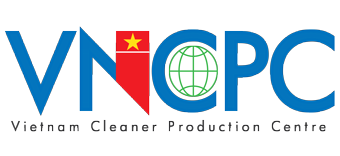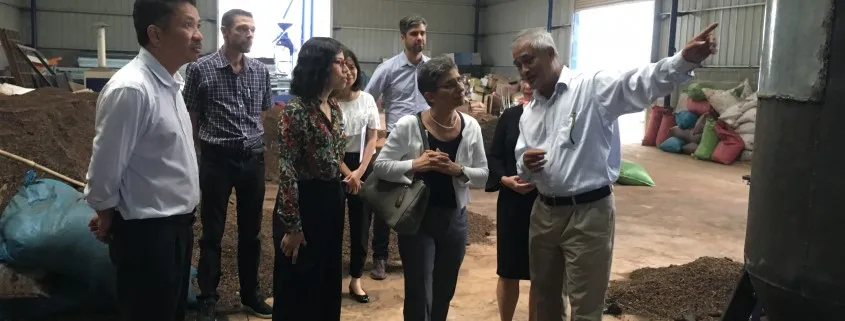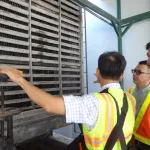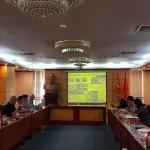The Swiss Ambassador to Vietnam had a working session with VNCPC and partners in the Low Carbon Project
Ms Beatrice Maser Mallor, Swiss Ambassador to Vietnam and United Nations Industrial Development Organization (UNIDO) had a working session with VNCPC and partners in Buon Ma Thuot city (Dak Lak), on november 7th, who implemented the project “Reducing industrial waste for a low carbon production” (Low carbon).
The project is funded by the State Secretariat for Economic Affairs (SECO) through UNIDO, with the overall aim of improving the local environment, reducing greenhouse gas emissions and bringing economic benefits to businesses.
Vietnam Cleaner Production Center Co.Ltd. (VNCPC), SOFIES (Switzerland), Viet Hien Mechanical Company are the partners who have made the project successful.
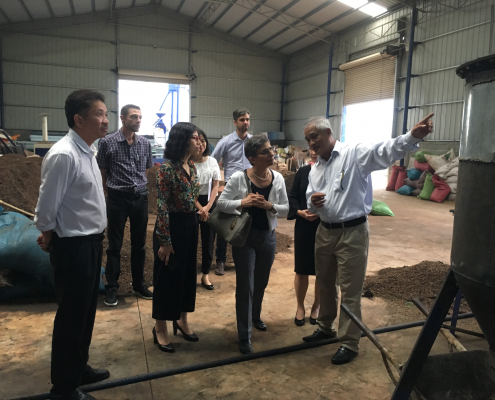
Representative of Hien Hien Mechanical Company introduced the results of the project to Beatrice Maser Mallor, Swiss Ambassador to Vietnam.
At the meeting, the representatives of the project implementation units reported on the project implementation as well as the results achieved by the project, especially the successful transfer of pyrolysis from Thuy Sy for Viet Hien Mechanical Company.
At present, the technology has been successfully manufactured on an industrial scale and there are orders to export the first pyrolysis systems to countries like Brazil, Cambodia and Serbia.
The Ambassador highly appreciated the results of the project, especially the efficiency of pyrolysis technology applied in coffee production in Vietnam.
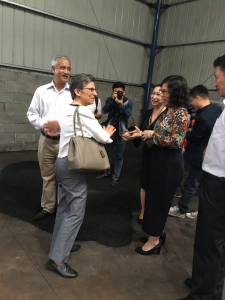
The Ambassador highly appreciated the results of the project, especially the efficiency of pyrolysis technology applied in coffee production in Vietnam.
Beatrice Maser Mallor affirmed at the meeting that Vietnam is one of the priority countries in the Swiss Government’s economic cooperation program and will continue to receive support programs in enhancing protection environment, mitigation and response to climate change.
Le Viet Vinh, deputy director of Viet Hien Mechanical Company, said that the pyrolysis technology uses agricultural residues such as coffee husks, rice hulls, wood chips… at high temperatures in the absence of oxygen. Generates a gas mixture in the reaction chamber. This gas mixture is further put into the combustion chamber to burn at temperatures higher than 1000 degrees Celsius to produce a clean and stable source of energy for the drying of coffee berries. The reason pyrolysis technology can replace the backward burning technology, emit more dust and toxic gas into the environment is due to the pyrolysis process does not create smoke and odors into the surrounding environment.
In addition, this technology solves a long-standing problem that is the conflict between the use of coffee pods for the purpose of drying fresh fruit or for the purpose of fertilizer improvement soil. Pyrolysis technology has been successfully transferred from Switzerland, with the use of coffee husks as fuel to provide a stable source of heat for drying coffee beans. Not only that, the pyrolysis process produces a product called biochar that is used as a fertilizer for soil improvement.
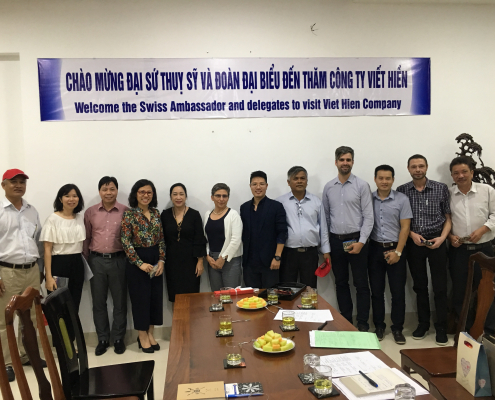
Accordingly, biochar helps to improve soil porosity with high water holding capacity, preventing leakage, evaporation or deep penetration after irrigating, preventing soil erosion, creating favorable conditions for Beneficial bacteria live in soil, attract and retain nutrients to fertilize crops.
On the occasion of visiting Dak Lak, the Ambassador visited the model of pyrolysis system installed at Binh Minh Cooperative in Cu M’gar district. Since 2016, members of the cooperative have used pyrolysis technology to proactively dry the process, helping to avoid the effects of long-lasting rain during the coffee harvest, thereby bringing about high quality coffee and environmental protection.
According to representatives of VNCPC – the project implementing unit, over 4 years of implementation, the project has assisted in the assessment of resource efficiency and clean production for 16 rice processing plants and 10 processing companies. Turns out coffee, which saves 1.08 million kWh per year, equivalent to over $ 80,000, cutting 621 tonnes of CO2 emissions into the environment every year.
VNCPC
